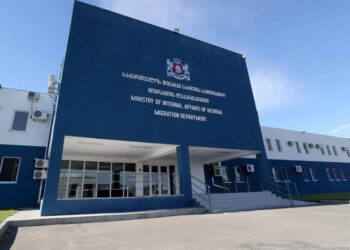Georgian officials, opposition leaders, and ordinary citizens commemorated the 30th anniversary of the fall of Sokhumi on September 27, 1993, marking the end of armed conflict in Abkhazia in 1992-1993.
Speaking at the wreath-laying ceremony at the memorial of fallen Georgian soldiers in Tbilisi, Georgian Prime Minister Irakli Garibashvili stated:
“With the fall of Sokhumi, one of the most dramatic events, the war of Abkhazia, ended in the history of modern Georgia. We deeply believe that peace is the foundation on which we must build a united, strong, developed country together with our Abkhaz and Ossetian brothers.”
The head of the government offered his condolences to the family members and relatives of the war victims.
“Exactly 30 years ago, on September 27, 1993, with the fall of Sokhumi, one of the most dramatic events, the war of Abkhazia, ended in the history of modern Georgia.
“The war left a heavy mark on our country – ethnic cleansing made hundreds of thousands of people displaced in their own homeland, which is the saddest thing. It tragically claimed the lives of many of our fellow citizens; The de-occupation of the regions occupied by Russia and the unification of the country continue to be the main challenges of our state and society.
“Once again, I offer my sincere condolences to the family members and relatives of the war victims.
“Today, as we remember the sacrifices made, we reaffirm our commitment to the peaceful resolution of the conflict; Our government firmly follows this path, because we deeply believe that peace is the foundation on which we must build a united, strong, developed country together with the Abkhazian and Ossetian brothers.
“I believe that the future belongs to the unity, peace and prosperity of Abkhazians and Georgians”, said the Prime Minister.
September 27 is associated in Georgia with the loss of control over Abkhazia and the ethnic cleansing of Georgians that occurred in that region. Reportedly, more than 12,000 people died during the armed conflict. Around 300,000 remain displaced.
By Ana Dumbadze














